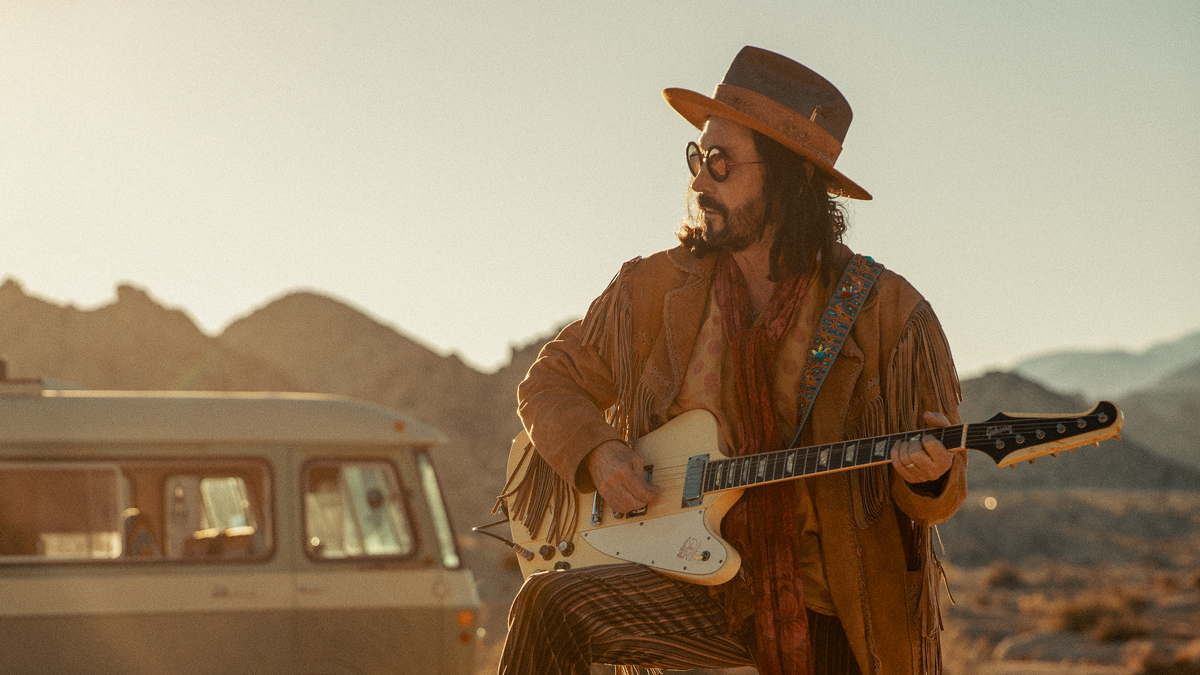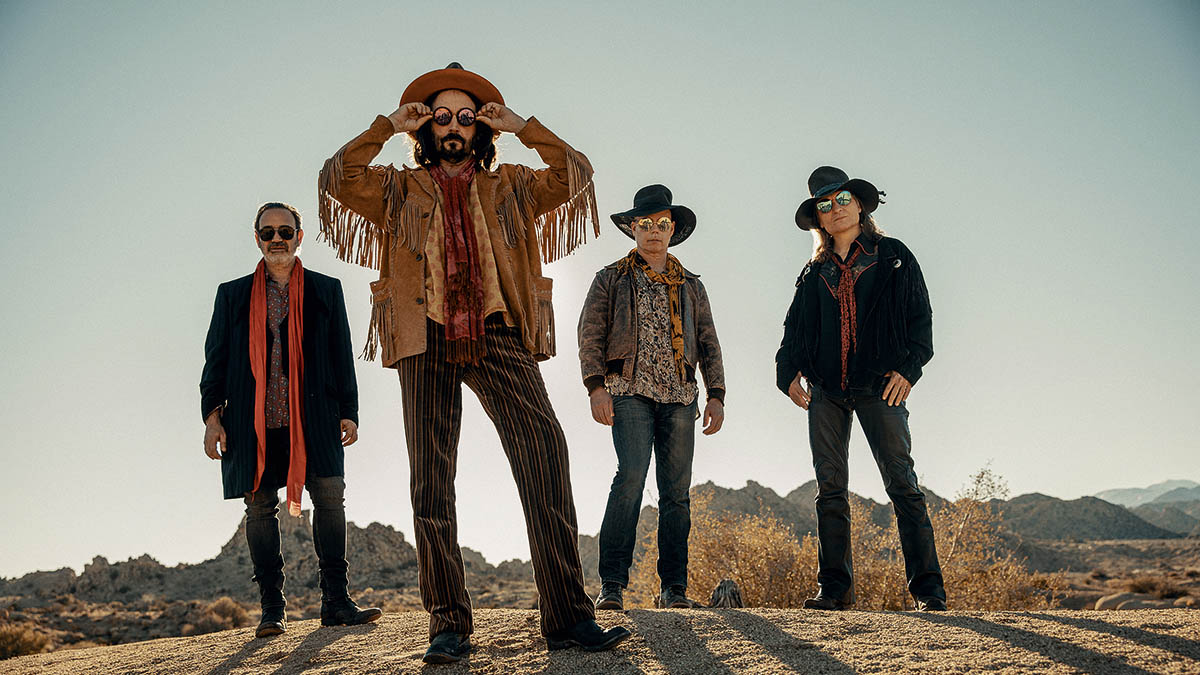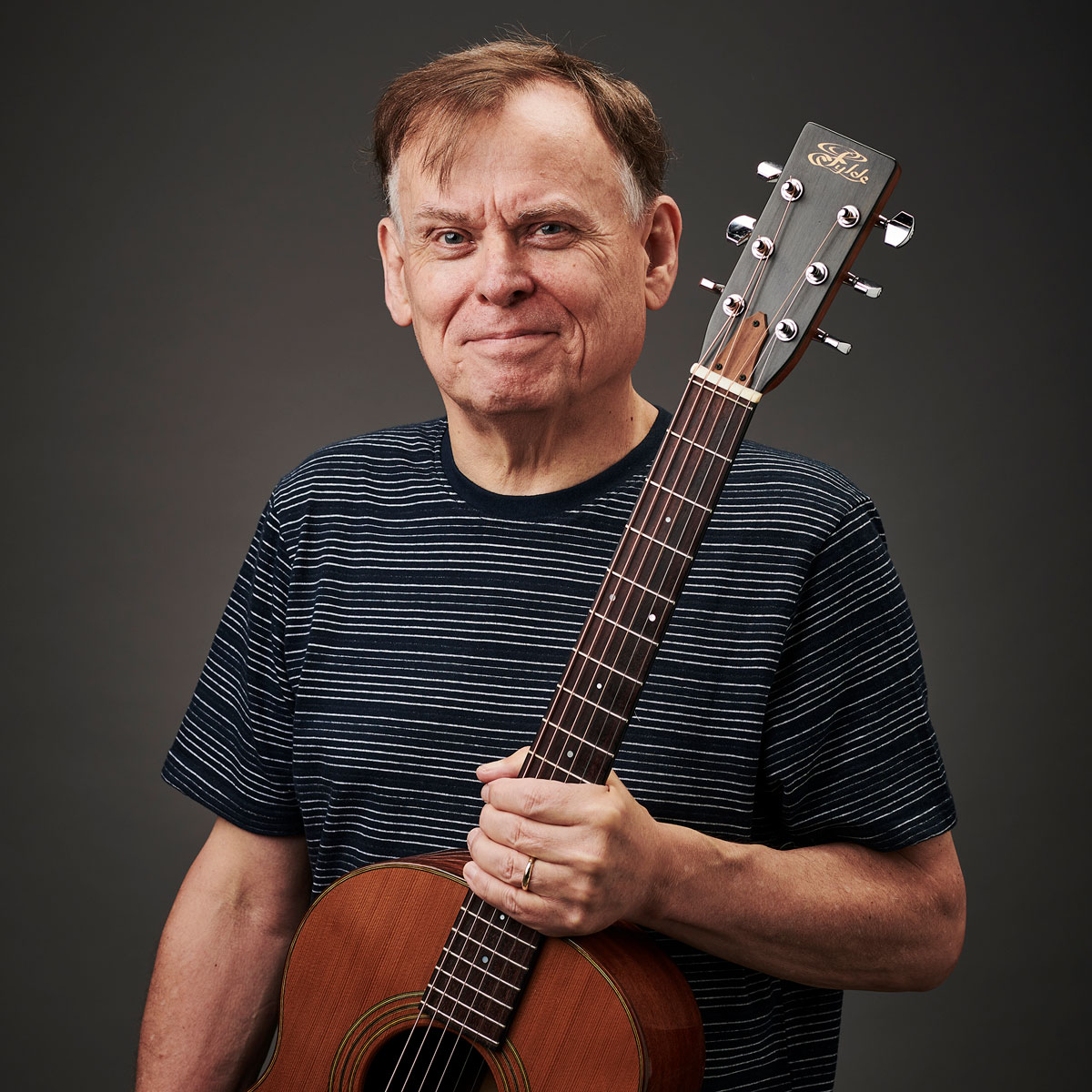Mike Campbell: “When the Heartbreakers started out, we had 100-watt Vox Super Beatles – I don’t know how Tom Petty sang over those, but he did!”
The Heartbreakers guitarist on getting the Dirty Knobs back together for an album that mines the tonal gold of small tube combos and captures the magic of recording live

Since the untimely death of Tom Petty, Heartbreakers guitarist Mike Campbell has kept himself busy.
After touring extensively with Fleetwood Mac, he took to his home studio to record a second album with his band The Dirty Knobs.
We catch up with him to find out how it all came together…
This is only the second album you’ve made with the band, and yet you’ve been together for quite a long time.
“Yeah, well, I was busy for many decades with the Heartbreakers and in between tours, I met these guys and we would record and play little clubs around town just for fun.
“These guys are really good, very patient. And so when my time opened up, this is what I wanted to do. We’ve actually been together quite a while and know each other well, and we have an intuitive style. So it worked out really good.”
What are your influences when it comes to writing your own material?
Get The Pick Newsletter
All the latest guitar news, interviews, lessons, reviews, deals and more, direct to your inbox!
“Well, the ‘60s is where I grew up, which I think was an amazing time to learn guitar. It was such a renaissance as we look back on it – the ‘60s and early ‘70s. All those great bands and great songs. You just don’t have that any more. Those are my roots and those are the influences that I draw on when I make my own music.”
I went to see Neil Young here in LA once and he was playing through a little tweed amp, and they had a microphone on it and up through the big PA – it sounded huge
Was all the material written specifically for this album?
“About half of it was. I’ve got a bunch of analogue tapes and I’ve been going through them, baking them and restoring them. I found three or four songs from those old tapes back in the ‘90s that ended up on the album. I had forgotten about them, but they turned out to be really good, so it worked out.
“A song called State Of Mind, which has Margo Price on it, was an old track I had completely forgotten about. The title track External Combustion was [originally just] a piece of a riff that was on tape, and I thought, ‘Well, I can make something out of that now…’ and maybe a couple more. Those are the first ones that come to mind.”
And you recorded this in your own studio?
“Yes, I’ve recorded in my home studio for a long time. A lot of Heartbreaker stuff, too. I have a great state-of-the-art studio in the annexe next to my house and it sounds awesome. Don’t have to worry about the sounds, I just get to work on the music.”
Talk us through the selection of gear you used on this album…
“I was using my ’59 Les Paul, which I don’t take on the road. It records really well. Occasionally, there’s a Telecaster in there. The amp was a little Fender Princeton and an Ampeg Rocket amp – little amps in a nice-sounding room, mic’d up, you know, close and far away.
“That was pretty much it. The other guitar player [Jason Sinay] played a Strat most of the time. He has a ’72 Strat and he also played through a Princeton amp. That was our sound. That’s what we use on stage, too.”

Using a small guitar amp to get a huge sound was a secret weapon of many ‘70s bands. Can you explain how you also came to do that?
“When the Heartbreakers started out, we had big loud amps. We had these things called Vox Super Beatles, which were 100-watt amps and they’re about 4ft tall. Loud as crap, and I don’t know how Tom [Petty] sang over those, but he did. As the years went on, we got tired of loud stage amps and got the slightly smaller amps.
“I went down to an AC30 for a while. But when I started playing with my band in the clubs, I went down to an even smaller amp like the Princeton, and I also used a Fender Tweed Deluxe from the ‘50s. I got that idea from Neil Young, actually.
“I went to see Neil Young here in LA once and he was playing through a little tweed amp, and they had a microphone on it and up through the big PA – it sounded huge, you know? And what’s great about that is the stage sound is not blasting. You’ve got a nice sound and you can put it through the PA to make it as loud as you want. I liked that so much I started using it with the Heartbreakers as well.”
Did you record the band live in the studio?
“This band is all live. Most of the solos are live on the take, and most of the takes are the first or second. I like to catch the band unawares before they really know what they’re doing too much and before they’re thinking about it.
“You know, you catch the spark of discovery in the music, in the moment, and get that on tape, rather than labour over it and overdub later. I mean, there’s a few overdubs here and there on the record, but a lot of the vocals and almost all the lead guitars and the rhythm tracks are basically us just playing. That’s how we sound.”
How do you approach a solo in the studio?
“I like to complement the vocals. I listen closely to the vocal and the melody, and, when I play, I try to be another voice that fits in and doesn’t distract from the song. I have a basic outline of what I want to do, then I just roll the tape – I like to have things come off the top of my head. I rarely work them out in advance. I just like the spontaneity: run the tape and I’m going to play along and hope something happens.”
Do you use pedals in the studio or do you go straight into the amp?
“Mostly straight into the amp. But with this band, and this record – since it is basically the way we play live – I had some pedals set up so I could kick up the volume here and there, or add a delay with my feet on the fly, so we don’t have to overdub and put echo on it. It’s all basically off the pedalboard. It’s just a simple pedalboard: overdrive and a delay mostly is all I used.”
The main thing really, with recording and writing, is to be truthful. It should not be a labour
You play slide on the album. Are you a glass or steel slide player?
“I like glass. Back in the day they didn’t make glass slides. You could get an aspirin bottle – a Coricidin bottle – and throw the pills out, put that on your finger. So I learnt to play with the sound of glass. I’ve used metal and sometimes ceramic, but the glass seems to speak to me a little better.”
What’s your personal philosophy when it comes to recording?
“I do a lot of recording on my own, which can be fun. I mean, the main thing really, with recording and writing, is to be truthful. It should not be a labour, you know? You should just be enjoying it and if you’re really having fun and getting off on the sound and creating your ‘little masterpiece’, then that’s 90 per cent of the game. And believe in yourself; you have to have confidence that you can make it good.”
- External Combustion is out now via BMG.
With over 30 years’ experience writing for guitar magazines, including at one time occupying the role of editor for Guitarist and Guitar Techniques, David is also the best-selling author of a number of guitar books for Sanctuary Publishing, Music Sales, Mel Bay and Hal Leonard. As a player he has performed with blues sax legend Dick Heckstall-Smith, played rock ’n’ roll in Marty Wilde’s band, duetted with Martin Taylor and taken part in charity gigs backing Gary Moore, Bernie Marsden and Robbie McIntosh, among others. An avid composer of acoustic guitar instrumentals, he has released two acclaimed albums, Nocturnal and Arboretum.
Guitar World Discussion: Who is the most underrated guitar player of all time?
Ozzy Osbourne’s solo band has long been a proving ground for metal’s most outstanding players. From Randy Rhoads to Zakk Wylde, via Brad Gillis and Gus G, here are all the players – and nearly players – in the Osbourne saga














